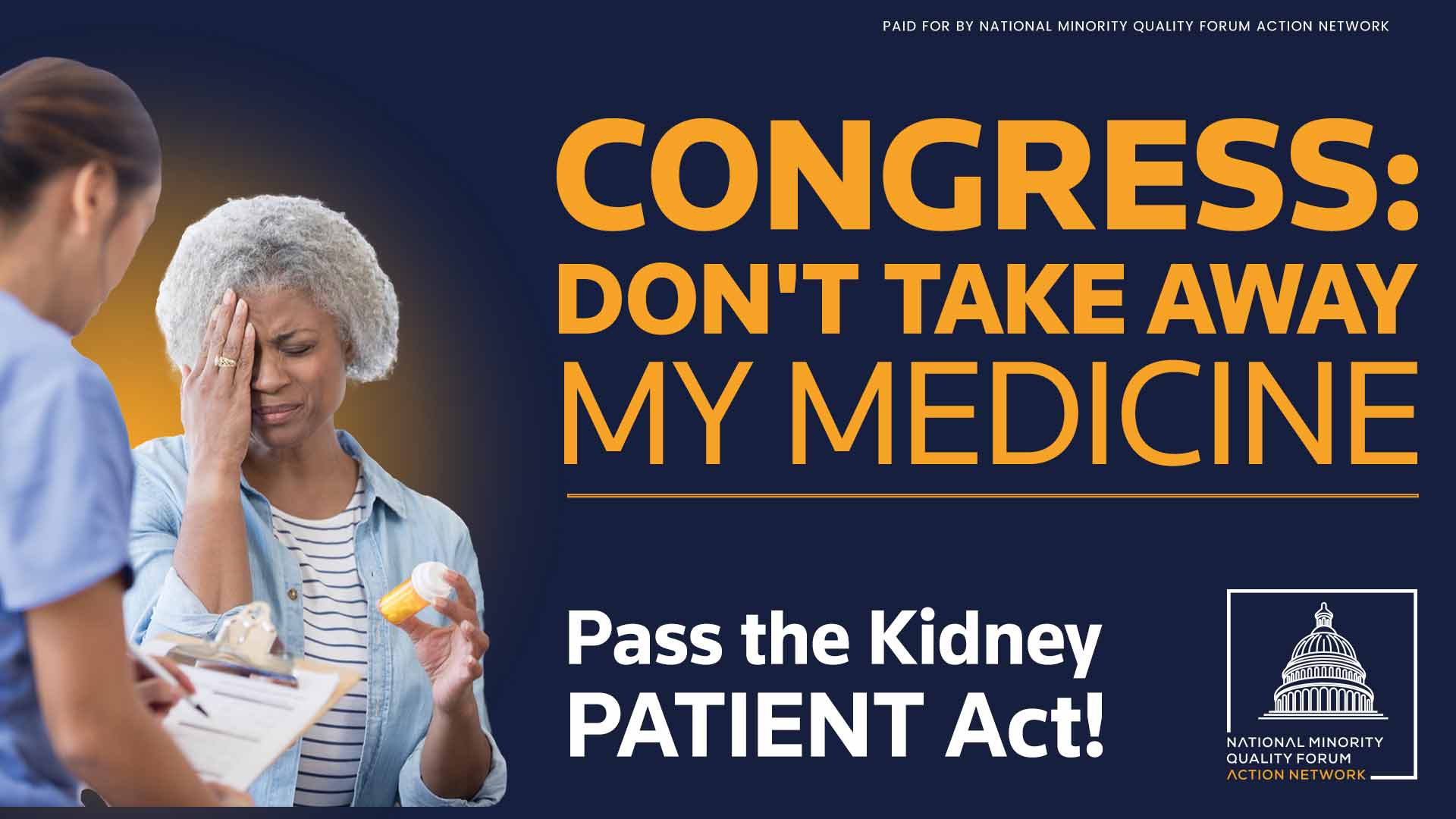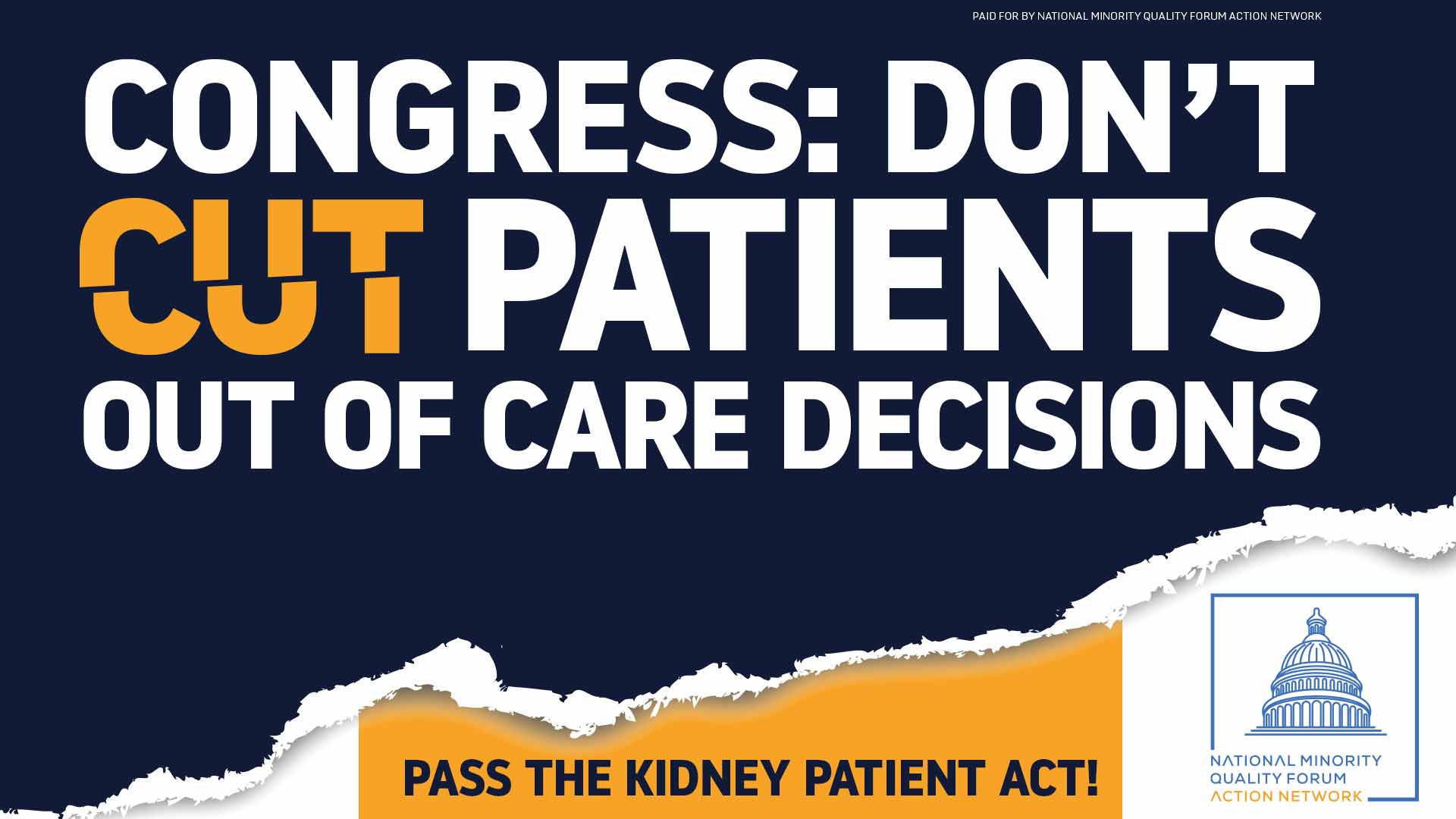| |
|
|
| |
|
Presented By the National Minority Quality Forum Action Network
|
| |
|
Axios Future of Health Care
|
|
By
Caitlin Owens
·
Dec 20, 2024
|
|
Good morning. This will be the last Future of Health Care of 2024. I hope you have a restful holiday season with loved ones, and we'll see you next year! Today's word count is 1,121, or a 4-minute read.
|
| |
| |
|
1 big thing: Inside pharma's RFK Jr. silence
|
| |

|
|
|
Illustration: Brendan Lynch/Axios
|
| |
|
The pharmaceutical industry and its allies — which once included most elected Republicans — have met President-elect Trump's nomination of one of America's leading vaccine skeptics to lead the country's premier health agency with a surprisingly muted response. Why it matters: Trump's domination of the Republican party and the pharmaceutical industry's public acquiescence have made a HHS Secretary Robert F. Kennedy Jr. not only possible, but likely. The latest: Kennedy began making the rounds in the Senate this week, and many members had positive things to say after meeting with him — including about what he said about vaccines. - "The elephant in the room is the position on vaccines," Sen. Thom Tillis (R-N.C.) said. "And he laid out an argument that we're looking at now, which is far more narrow-scope than the way it's being portrayed."
The big picture: The GOP has gone from being accused of having knee-jerk defenses of the pharmaceutical industry to being on the brink of empowering one of its top critics. - And the pharmaceutical industry, historically quick to unload its war chest against all policies it doesn't like, has met Kennedy's appointment with little to no public resistance.
Last week, Trump and Kennedy met with the CEOs of Eli Lilly, Pfizer and PhRMA — the industry's leading advocacy organization — at Mar-a-Lago. - Also attending the dinner was Aaron Siri, Axios has learned, a staunch supporter of Kennedy and whose law firm has asked the FDA to revoke approval of the polio vaccine on behalf of a client.
- Siri's attendance suggests that he remains enormously influential on Kennedy.
The intrigue: The pharmaceutical industry sees little upside to launching public attacks against Kennedy, multiple sources said. - That's partially because there's a good chance he gets confirmed regardless, which would mean the industry will have to try to work with him.
- And while he's said a lot of things about vaccines and other drugs that the industry vehemently disagrees with, there's a genuine sense that his agenda remains unknown, and could be largely driven by lower-level appointees to head various subagencies.
But there's also a perception that opposing Kennedy only fuels his narrative about Big Pharma and its nefarious role in Americans' health. - "There's genuine question about what he will prioritize. Will he go on some vaccine reign of terror? I don't know," one health care lobbyist said. "Trying to be the knife that takes him out, then you're even feeding the conspiracy more in some ways."
- "We want to work with the Trump administration to further strengthen our innovation ecosystem and improve health care for patients," PhRMA CEO Stephen Ubl said in a statement when Kennedy was nominated.
Between the lines: There's a similar dynamic playing out among Republicans skeptical of Kennedy's vaccine rhetoric but reluctant to sink one of Trump's nominees. - That gives them plenty of incentive to find a way to support Kennedy, and so far he seems to be making it easy for them.
- "It's one thing for his lawyer to petition to take [vaccines] off the market, it's another to say that 'All vaccines deserve scrutiny to ensure that they work with minimal side effects. Vaccines deserve scrutiny and we should always review the science as we learn,'" said a former GOP Senate staffer and current lobbyist.
Continued below ...
|




|
| |
| |
|
2. The emerging vaccine agenda
|
| |
|
Trump, Kennedy and Kennedy's allies have made clear that vaccine scrutiny remains on Kennedy's agenda, even if that stops short of revoking approvals. Be smart: That likely includes investigating claims that certain vaccines cause autism, which has been disproven by numerous studies. - "You're not going to lose the polio vaccine," Trump said during a press conference Monday, adding that his administration will look into "why is the autism rate so much higher than it was 20, 25, 30 years ago?"
- "NBC today blasted @realDonaldTrump and @RobertKennedyJr for wanting to study a possible connection between 'autism and childhood vaccines' because NBC claims it has been 'debunked' by 'hundreds of studies.'** But has it? The answer is unmistakably 'no!'" Siri, Kennedy's strong ally, recently posted on X.
For some members, Kennedy's recent assurances that he doesn't want to take away vaccines have been enough. - "He says he's not against vaccines," said Sen. Chuck Grassley (R-Iowa), who hasn't met with Kennedy yet. "Get all the facts out, there's nothing wrong with that. ... I can't condemn a cabinet member for wanting government to be more transparent."
- "RFK has done a good job reassuring GOP senators that he is not setting out to end any and all vaccines. He wants to bring more scrutiny to the vaccine approval process and he thinks it's ok to question things, but he's not going to end the polio vaccine," said the former GOP Senate staffer and current lobbyist.
Yes, but: Even if he makes no attempt to force vaccines off the market, Kennedy would have plenty of options for discouraging vaccine use at his disposal should he become the head of HHS. - Those range from influencing who sits on powerful advisory boards to undermining public confidence in vaccines from the bully pulpit.
The other side: Kennedy is saying plenty that Republicans genuinely like, and some of his pet issues — like America's food supply — even draw bipartisan interest. - And so far, Trump's rhetoric about pharmacy benefit managers has been music to the drug industry's ears.
The bottom line: There's no guarantee that Kennedy actually becomes HHS secretary. But it seems increasingly likely that his vaccine views won't be the thing that sinks him.
|




|
| |
| |
|
A message from the National Minority Quality Forum Action Network
|
|
Black Americans are 4x more likely to develop kidney failure
|
| |

|
| |
|
All kidney patients deserve equal access to life-saving care.
Okay, but: Congress must extend current law through the Kidney PATIENT Act to break down barriers and ensure equitable care for all kidney patients.
Make your voice heard and take action to protect lives!
|
| |
| |
|
3. A drug price dynamic to watch
|
| |
 Reproduced from Peterson-KFF Health System Tracker; Chart: Axios Visuals Even the Medicare-negotiated rates that the U.S. pays for some drugs is generally much higher than what other comparable countries pay for the same products, a new KFF analysis found. Why it matters: Trump seemingly dropped his proposal to drive better bargains for what the U.S. pays for drugs when he removed his "most favored nation" policy proposal from his campaign website. - But that certainly doesn't mean that the concept has gone away forever.
The intrigue: Eli Lilly CEO Dave Ricks, who was at the Mar-a-Lago dinner with Trump and Kennedy, recently discussed the need to get other developed countries to pay more for drugs. - "We have to raise developed countries, what they pay, and we can lower the U.S.," Ricks said, according to Fierce Pharma. "I think that's a policy argument we'll hear about soon with the new administration."
Between the lines: The drug industry has long argued that the U.S. subsidizes drugs for the rest of the world, and forcibly lowering what the U.S. pays would hurt innovation. - Getting other countries to pay more, even if the U.S. pays less, has an obvious appeal to pharma — and a pretty obvious appeal to Trump, who hates any suggestion that the U.S. is getting ripped off.
|




|
| |
| |
|
A message from the National Minority Quality Forum Action Network
|
|
The kidney community has spoken – will Congress listen?
|
| |

|
| |
|
Without Congressional action this year, dialysis patients face:
- Restricted access to critical meds.
- Worse health outcomes.
- Increased financial burden.
- Obstacles to innovative care.
Over 150 organizations have voiced support for H.R. 5074 / S. 4510, including patients and clinicians.
Learn more.
|
| |
|
Thanks to Nicholas Johnston and Adriel Bettelheim for editing and Matt Piper for copy editing.
|

|
Your essential communications — to staff, clients and other stakeholders — can have the same style. Axios HQ, a powerful platform, will help you do it. |
|
|
|